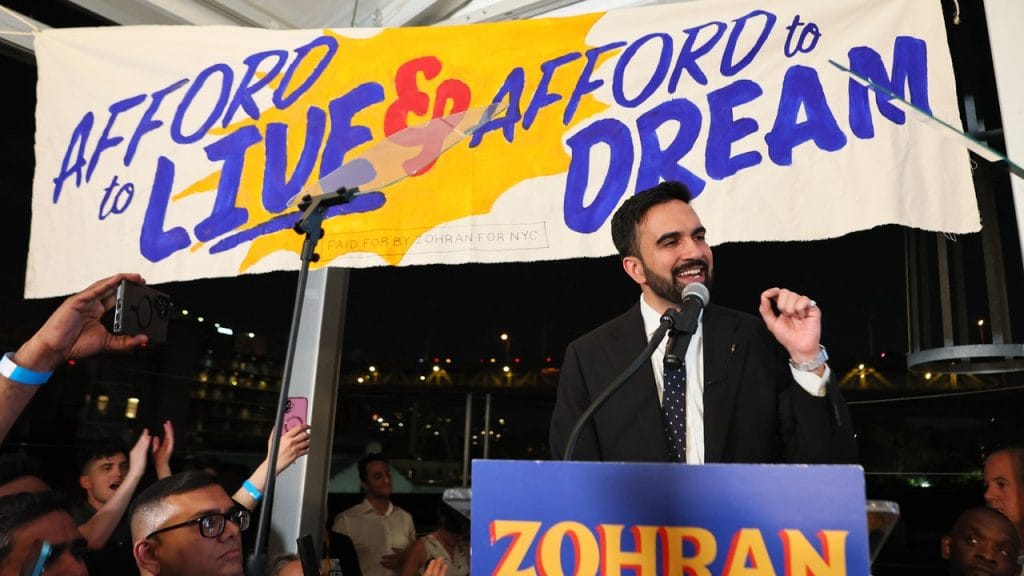
Zohran Mamdani did something different, and it made all the difference. The 33-year-old Ugandan-born, Indian American state assemblymember has consistently demonstrated his leftist politics over the years, from hunger strikes in solidarity with taxi workers and the people of Gaza, as covered on this site, to his campaign platform, which embraced progressive policy proposals ranging from city-owned grocery stores to free buses and childcare to strong LGBTQ+ protections. (Also covered on this site: his 2010s music career, which became the subject of many memes over the last few weeks — ideal, given his prolific social media presence. As with so much else, he knew how to work it to his advantage.)
This was the playbook the Democratic Party eschewed in 2024 by essentially leaving those issues and constituencies on the table, as I argued in the wake of that year’s presidential election. After a chaotic election season that saw many Dem candidates and electeds trending more moderate, and a subsequent second win for Donald Trump, a number of Democratic pundits were shocked by how badly they had gotten beaten, but others closely following, including myself, were unsurprised. The Democrats had failed to provide an appropriately stark alternative to the anti-migrant, anti-LGBTQ+, anti-education, anti-climate science policies platformed by Trump. Failing to present a strong left-wing or anti-establishment presidential candidate, particularly after years of intra-party conflict sowed in a post-Bernie Sanders political world, cost them at the polls.
Even though it’s absurd to keep trying the same thing over and over and expect a different result, last year plenty of Democratic lawmakers moved away from the constituencies that have historically made up their base and have continued in that direction into the second Trump administration. Take the white dudes you might not be shocked to see back down, like California Gov. Gavin Newsom, who tried to make himself the main character of Los Angeles’s anti-ICE protests and bowed to Trump’s attacks on a trans high school girl. Despite the latter, the U.S. Department of Education just found that the state violated Title IX by historically allowing trans students to compete in school sports based on their gender identity, showing his attempt at capitulating wasn’t enough for the administration.
Then you have Congresswoman Sarah McBride of Delaware, who since November has complied with a bathroom ban in the Capitol and U.S. House office buildings pushed by Republicans like Rep. Nancy Mace and Speaker Mike Johnson, a policy that targets not just her, but all the trans people who work on the Hill. In an interview with the New York Times’ Ezra Klein last week, McBride scapegoated the left for some of the political backlash to trans rights, suggesting that being more conciliatory towards the likes of those campaigning against her right to use the correct bathroom might’ve netted more electoral gains for Democrats. Except Harris already tried that in 2024 by generally avoiding the issue of trans rights during her debate with Trump and her campaign writ large.
Rather than going conciliatory on trans rights, Mamdani actively campaigned to trans New Yorkers, a number of whom are refugees from more conservative states’ discriminatory laws. He unabashedly embraced New York’s immigrant-heavy population, continuously recording social media content in different languages. Instead of trying to get on Joe Rogan’s podcast, as the Harris campaign reportedly attempted to do (or trying to become him — looking at you, Newsom), Mamdani went on Hasan Piker’s stream. In so doing, he was able to speak to those same constituencies who either felt burned or simply ignored by Democratic centrist campaign strategies.








